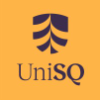No more applications are being accepted for this job
- Reports to: Discipline/Team Leader (Sport and Exercise) and Head of School (Health and Wellbeing) Member of: School of Health and Wellbeing
- Key contacts: Paramedicine staff
- Government departments / Legislative Bodies
- Other Universities
- Service Providers
- Relevant professional bodies
- Responsibilities of a Lecturer (Academic Level B) may include:
- The conduct of tutorials, practical classes, demonstrations, workshops, student field excursions, clinical sessions and studio sessions.
- Initiation and development of course material.
- Course examiner (coordinator) duties.
- The preparation and delivery of lectures and seminars.
- The conduct of research.
- Involvement in professional activity.
- Development of course material with appropriate advice from and support of a more senior employee. Marking and assessment.
- Consultation with students and broad administrative duties.
- A range of administrative functions the majority of which are connected with the courses in which the employee teaches.
- Attendance at departmental and/or faculty meetings and/or membership of a number of committees.
- As a member of the University community, demonstrate the highest possible standards of professional and personal conduct, both as an individual and as part of a team, commit to regular engagement in personal, professional and team development, and demonstrate behaviour consistent with the key capabilities outlined in the USQ People Capability Framework.
- Engagement in USQ marketing activities and involvement with external key stakeholders.
- A Master's degree in Paramedicine or related discipline and ideally, progress towards or completion of a PhD or Doctorate.
- Evidence of eligibility for registration with the Paramedicine Board of Australia.
- Demonstrated commitment and ability to contribute to the discipline of Paramedicine including professional membership with a relevant association or involvement in a professional organisation.
- A record of teaching excellence, with a demonstrated capacity to successfully teach in Paramedicine programs using contemporary approaches to pedagogy. Expertise and/or experience in, blended and online learning would be highly desirable.
- Demonstrated capacity to initiate and lead professional development and/or community initiatives relevant to Paramedicine.
- Evidence of research engagement and outputs. A research plan or evidence of the potential to engage with others in team based research is desirable.
- Demonstrated ability to leverage connective technologies to share ideas, improve workflow, and achieve team outcomes, regardless of the physical location of team members.
- Alignment with the core University values of Respect, Integrity, and Excellence.
- In addition the following qualities will be considered:
- Team Work: demonstrated ability to contribute, and willingness to take actions which foster team spirit and build and maintain cooperative and productive relationships.
- Rapport/Empathy: demonstrated capacity to maintain goodwill and dialogue and to recognise and respond appropriately to the needs and feelings of others.
- Communication Skills: demonstrated capacity to communicate effectively in written and oral forms to effectively convey information and where necessary gain acceptance of ideas.
- Initiative: demonstrated capacity to take or originate action to achieve goals appropriate to the position.
Lecturer (Paramedicine) - Queensland, Australia - University of Southern Queensland

